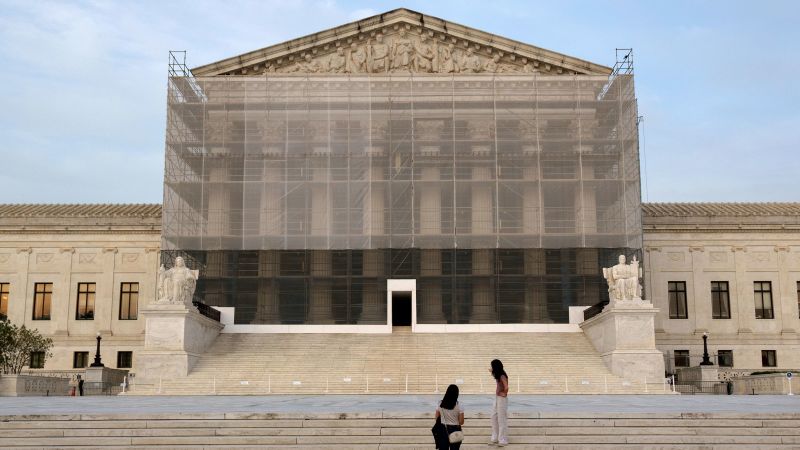On a significant afternoon in recent history, the Supreme Court of the United States issued a ruling that permits President Donald Trump’s administration to resume deporting migrants to countries other than their country of origin, including South Sudan, often without adequate advance notice. This decision has profound implications for both immigrant rights and the legal landscape surrounding deportation policies. The urgency of this ruling arrives amidst a tumultuous immigration climate, as the government’s power to act competently and in accordance with fixed judicial standards is being called into question.
The ruling represents a considerable victory for the Trump administration, which had maintained that a lower court had overstepped its bounds by mandating the Department of Homeland Security (DHS) to inform migrants where they would be sent and to allow them an opportunity to challenge those deportations based on fears of torture. This previous ruling came from US District Judge Brian Murphy, who claimed that the government’s attempt to deport migrants to third-party nations without due process blatantly breached constitutional protections. The debate at the heart of this ruling revolves around the controversial practices in detaining and deporting individuals who fear for their safety upon re-entry to their country or deportation to a third country, oftentimes marked by significant human rights issues.
The ruling prompted strong dissent from the Supreme Court’s three liberal justices—Sonia Sotomayor, Elena Kagan, and Ketanji Brown Jackson—who argued against what they described as a reward for lawlessness. Justice Sotomayor expressed her concerns about the Court’s decision to intervene and grant emergency relief to the administration, stating that this intervention undermined the careful management intended by lower court colleagues. Her dissent highlighted the pressing importance of maintaining a legal system predicated on due process, especially in light of prior court rulings that have insisted upon procedural fairness in matters of deportation.
This decision is consequential not only for its immediate effects but also for the broader implications it carries in relation to several previous rulings by the Supreme Court. Steve Vladeck, a CNN Supreme Court analyst and a Georgetown University Law Center professor, indicated the significance of this ruling by linking it to prior emergency docket rulings. In recent months, these have laid the groundwork for the Trump administration to significantly alter the status of numerous migrants and their deportation proceedings, with the Court thereby clearing avenues for the treatment of migrants as deportable who previously were protected under different legal standards.
The circumstances surrounding the deportations are further complicated by reports highlighting the plight of migrants detained at a US military base in Djibouti, with allegations that they are not only being moved under life-threatening conditions but also without any access to legal representation. This situation is particularly alarming given the reported conditions in South Sudan, a nation facing dire humanitarian crises, escalating violence, and significant political instability. Such contexts raise ethical questions regarding the treatment and rights of those seeking asylum or refuge from persecution.
Furthermore, humanitarian organizations stress the urgent need for protection of these vulnerable populations. The National Immigration Litigation Alliance, among other groups, has heavily critiqued the administration’s handling of the situation and the inadequate provision of process for those potentially facing deportation into harm’s way. The government’s assertions claiming that many detainees carry significant criminal records stand counter to the arguments made by lawyers representing the migrants, who maintain that a considerable number of their clients lack any criminal convictions.
At the core of this legal tussle is the Convention Against Torture, ratified by the Senate in 1994, which prohibits deportations to nations where individuals might face torture. The intricacies of this law and comprehension of due process rights under its framework remain vague, posing legally and ethically complex dilemmas for both the administration and judicial systems. The Trump administration argues that it should not need to consider evidence of past torture in countries where it has received diplomatic assurances about the treatment of deportees.
This latest ruling emboldens the administration’s patterns of expedited deportations, emphasizing a troubled balance between national security interests and the humanitarian commitments upheld by international and constitutional laws. Amidst a historically contentious immigration environment, this ongoing legal battle illustrates the profound implications for migrants who find themselves awaiting their fates under a system that oscillates between strict enforcement and apparent disregard for their rights and dignity.











